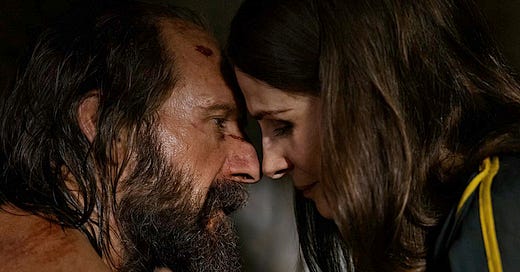Ralph Fiennes, who does a nice line in ‘troubled and brooding’, makes lavish use of this skill in The Return, a story drawn from one of the foundational texts of western literature, The Odyssey by Homer. The epic poem dates from the 8th Century, BCE, but we’ve grown accustomed to movie adaptations that focus on Odysseus’s wanderings following the Trojan War, which include adventures that would be right at home in the Marvel Comics Universe. In Ulysses (1954), Kirk Douglas escaped the angry Cyclops and watched his men transformed into swine by the sorceress, Circe. In Christopher Nolan’s The Odyssey, due for release next year, Matt Damon will meet all the same sirens, monsters and cannibals, before washing up on the shores of his own island, Ithaca.
This is not the case with Uberto Pasolini’s version, which deals solely with what happens when Odysseus (Fiennes), finally arrives home, having been away for the best part of two decades. After ten years of war, he would spend another seven as the captive and lover of the nymph, Calypso. We see none of this, only the terrible toll it has taken on our hero’s psyche.
In the Iliad, Odysseus has a reputation as the smartest and trickiest of the Greeks. The Trojan Horse, by which the Hellenes finally won the day, was reputedly his idea. Yet the Greeks had little opportunity to savour their triumph. Many of their greatest heroes had been killed, and their leader, Agamemnon would be murdered by his wife and her lover upon his return to Mycenae. Odysseus would anger the sea god, Poseidon, by blinding his son, the Cyclops, and was condemned to be lost for years.




